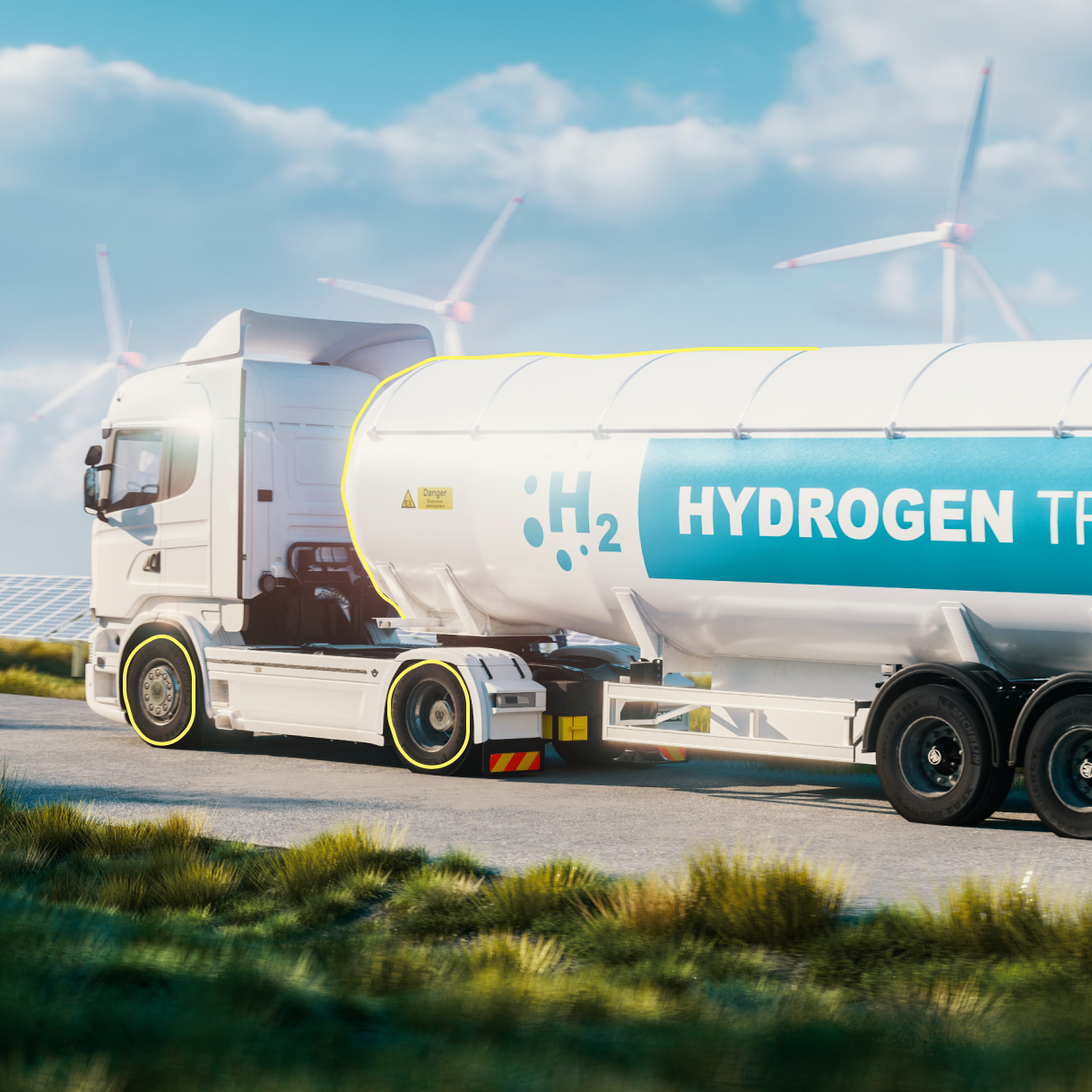Möchten Sie mehr wissen? Vereinbaren Sie ein Beratungsgespräch!
Short and sweet
Sustainability is a topic you won't be able to avoid in the manufacturing industry in 2021. Even though these two topics are difficult to think of together, you need to approach it little by little.
Remaining optimistic despite the Covid 19 pandemic – that's been difficult in recent months, if not in the past year. But many industries and companies are picking up steam again, including the manufacturing industry. The individualization of products is increasing and the off-the-shelf product is moving further and further into the background.
We think: This is how it will soon be for corporate sustainability in the manufacturing sector. Because climate change and the pressure to stop it are becoming ever greater, sustainability will thus become a selling point. The keyword is "Green Factory". Jump on the sustainability bandwagon now, drive directly towards the future and thus bring forth a new USP for your company. Think of the time after Corona – post pandemic – if you start to act more sustainable now, you will be one of the future pioneers in the manufacturing industry.
The IS State
Manufacturing and production are difficult to think of in terms of sustainability in an ad hoc way. The production sector has long been one of the biggest polluters of the environment, with a very high volume of waste. Thus, companies operating in this industry do have an enormously large ecological footprint. In this sense, the sustainability indicator of the ecological footprint describes the area required to provide the raw materials and energy consumed by individuals and/or companies.
Studies show that while manufacturing companies want to reduce their environmental footprint, they usually don't know how and therefore fail to meet their goals.
Sustainability must not only become Manufacturing's present, but also its future. See this as an opportunity – because it is! Not only to do good for the planet, but also to secure long-term competitive advantages and become more attractive for customers and potential employees.
The approach
Why should you, as a manufacturing company, strive for sustainability? Which business processes can you actually make more sustainable? And above all – how?
There are a number of reasons why companies in your industry want to operate more sustainably: Increase operational efficiency by reducing costs and waste, respond to or reach new customers and increase competitive advantage, protect and strengthen brand and reputation and build public trust, build long-term profitability and success of the business, respond to regulatory constraints and opportunities.
Again, there are numerous options for how companies can ensure this and move forward on their own personal path to sustainable manufacturing.
First, it is important that you approach this project in a coordinated, integrated and formal manner, rather than ad hoc and informal. Focus on increasing competitiveness and revenue rather than continuous cost reduction, risk reduction, and improved efficiency. Use innovation, scenario planning, and strategic analysis to go beyond compliance. Integrate sustainability into all business functions. Focus on the long term here. Also collaborate with external stakeholders and experts.
In the best case, sustainable manufacturing strives for a Reduction in these four areas:
Reduction of energy consumption,
Reduction of water consumption,
Reduction of emissions,
Reduction of waste generation.
So with optimized processes in these areas, you get to minimize negative environmental impact of your business. Or in other words: saving energy and natural resources, improving reprocessing around assembly, repairability and disassembly, and industrial symbiosis.
What Salesforce and Salesfive can help you with is reducing your energy consumption and emissions.
The Salesforce Sustainability Cloud
At the beginning of this article, it was shown that the will to reduce the ecological footprint in the manufacturing industry is there – but a vision and the knowledge about how to get there are often lacking. The Salesforce Sustainability Cloud puts an end to this because it solves this problem. The cloud helps to measure things such as the company's energy consumption, travel habits, activities and much more, and to use Salesforce Einstein Analytics for converting these measurements into real data, which show the level of carbon emissions caused. Thus, in the blink of an eye, you get insight into your CO2 data and environmental influences. These can be filtered as required by region, location or other criteria and displayed in reports and dashboards, visualized as well as tracked. On this basis, you can develop strategies in the next step and ultimately take measures to improve your carbon footprint. With state-of-the-art analytics functions, companies can thus improve their energy consumption by
tracking,
calculating,
analyzing,
creating reports,
and taking action.
The TARGET State
Let's return to the IS state outlined at the beginning. If we consider this, the goal of manufacturing companies can be no less than to increase their emissions to zero through decarbonization.
The desired TARGET state can also be described by defining the term sustainable manufacturing: Manufacturing products through economically feasible processes that minimize negative environmental impacts while conserving energy and natural resources. Sustainable manufacturing also improves the safety of employees, communities and products. The overriding goal of sustainable manufacturing is to look at the entire product cycle and to optimize the life cycle of manufacturing systems, products and services.
Ultimately, the manufacturing industry is one that is constantly evolving and changing, even if much of that change has been rather slow in the past. In order to continue to steer the industry's development towards 100% sustainable manufacturing, every single company counts.
Because this is much more than a fad. Rather, sustainability is a condition for the industry to remain competitive not only in today's market, but also in tomorrow's.
Ready for the next project? Let's talk!
We will be happy to assist you in an initial consultation.




